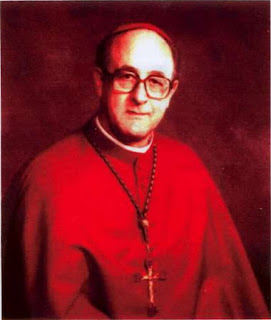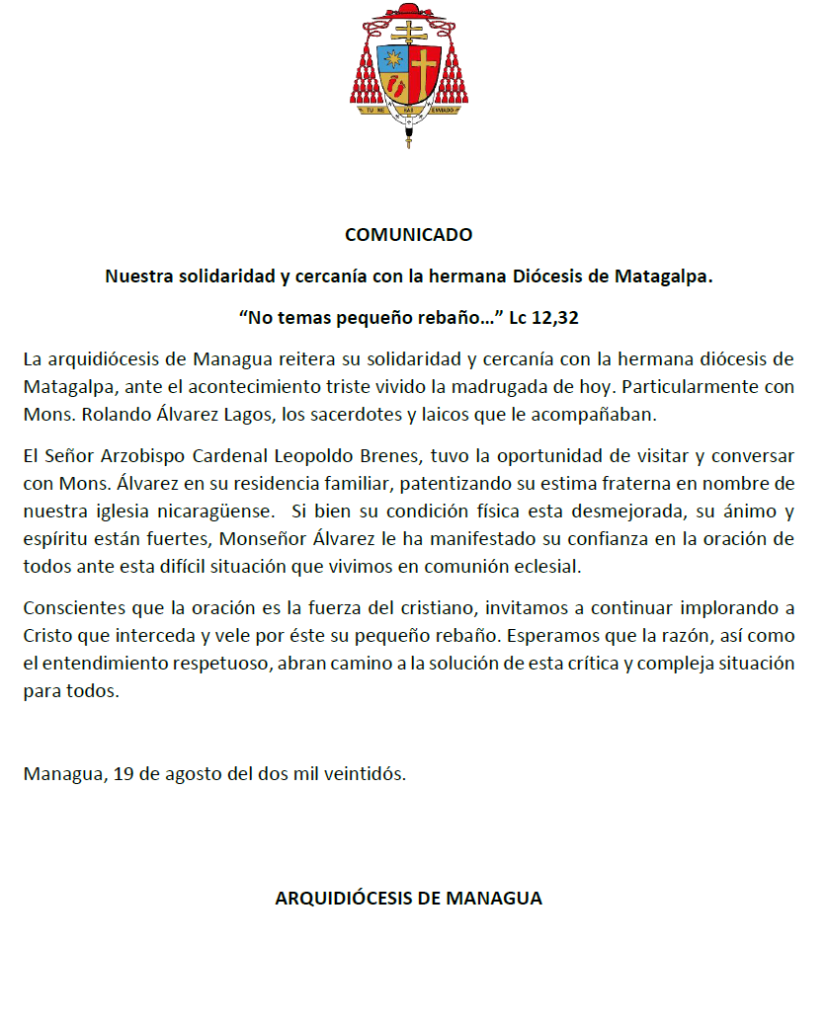Archabbot, Abbot General, Archbishop: The Benedictine Rembert Weakland had a sweeping career.
(New York) The archbishop emeritus of Milwaukee, Msgr. Rembert Weakland, died last night. He was involved in sex crimes, which promptly brought Jesuit James Martin, the figurehead of the Church gay lobby, to the scene to praise Weakland.
Monsignor Rembert Weakland was born in 1927 in the state of Pennsylvania. In 1945 he entered the Archabbey of Saint Vincent in Latrobe and became a Benedictine. In Solesmes he made his solemn vows in 1949 and was then sent to the Pontifical Athenaeum Sant'Anselmo, the Benedictine college in Rome.
Radical Progressive Ideas – Member of the Roman Consilium for Liturgical Reform
Rembert Weakland in the 60's
Ordained a priest in 1951, he continued his studies in various countries, including Germany. He studied Church music and became a recognized expert on Gregorian chant. In the course of his studies he discovered the high medieval spiritual drama "Ludus Danielis" in the British Library.
Returning to the USA, he first taught at St. Vincent College at his abbey. The convention elected Weakland Archabbot and Pope Paul VI in 1963. drew him in as a consultor to the Second Vatican Council.
In 1965/66 he was President of the Church Music Association of America, a presidency which quickly ended, however, because his ideas on music and dance were so radically progressive that he could not embrace them even in an "open-minded" climate then prevailing.
Paul VI called him for this. In 1968 to the notorious Consilium for the implementation of the liturgical constitution, which worked out the liturgical reform of 1969 under the de facto leadership of its secretary Msgr. Annibale Bugnini.
The recommendation of Weakland was made by the Swiss Benedictine and Cardinal, Benno Gut when he took over the presidency of the Consilium. Weakland had already succeeded Gut in 1967 as Abbot General of the Benedictine Order and Grand Chancellor of the Benedictine College of Sant'Anselmo.
Archbishop of Milwaukee
Paul VI nominated Weakland archbishop of Milwaukee in 1977. As such, he was criticized for the abuse of liturgy he practiced and tolerated and for the dubious decisions he made when renovating Milwaukee Cathedral. For his part, he himself attracted attention with harsh criticism of the declaration Dominus Iesus of the Roman Congregation for the Doctrine of the Faith, which is one of the most important documents of the pontificate of John Paul II and the tenure of Joseph Cardinal Ratzinger as prefect of the CDF.
During his episcopate and after his retirement in 2002, Weakland was repeatedly confronted with the accusation of having covered up sexual abuse by priests on minors, specifically homosexual abuse. In his autobiography he confessed something astounding: During the first years of his tenure in Milwaukee he "didn't understand" that the sexual abuse of minors was a crime. He transferred abusive priests from one parish to another without informing the new parish, let alone the police and prosecutors.
Weakland as Archbishop of Milwaukee
The protection of homosexual abusers obviously had a personal background. Weakland retired on May 24, 2002, having reached the age of 75. However, his resignation was overshadowed by a scandal. It was revealed that the archbishop had paid $450,000 from the diocesan treasury to former Marquette University theology student Paul Marcoux. In 1997, through resourceful lawyers, he entered into negotiations with the archbishop, threatening to accuse him of sexual abuse. Weakland, on the other hand, claimed he had a long-standing homosexual relationship with Marcoux.
During his studies, Marcoux lived with a priest in a parish where he volunteered. In 1979, when the pastor invited his archbishop to dinner, Marcoux and Weakland met for the first time. According to Marcoux, who was 31 at the time, they "got along well straight away". A few weeks later, Marcoux called the then 52-year-old Archbishop because, by his own account, he had considered entering the seminary. The archbishop then invited him to dinner and over "several aperitifs and two bottles of wine" they "got closer". Marcoux, who says he is bisexual and said he had just ended a homosexual affair with a Marquette University professor, was "frozen" because of the alcohol and respect for the office. There were further "sexualized encounters" with the archbishop. At some point he, Marcoux, realized that the Archbishop had "sexually abused" him. The rest is American history.
Fr. James Martin, in play as soon as homosexuality is discussed
In 2009, Weakland, who may have been the victim of a profiteer to some degree, confessed in his memoir, Pilgrims in a Pilgrim Church. Memoirs of a Catholic Archbishop” his homosexuality, from which he did not really distance himself. The German edition was published in spring 2022 under the title "Life Between the Cracks: Memoirs of an Archbishop" in the Four Towers Publishing House of the Benedictine Abbey of Münsterschwarzach.
Weakland's successor as Archbishop of Milwaukee, Monsignor Jerome Edward Listecki, who has been in office since 2010, sees less reason to cherish the memory of his predecessor. Because of the scandal, he decided to have the Weaklands name removed from the diocesan buildings.
That didn't stop Santa Marta-backed homophile Father James Martin SJ from praising Weakland - while specifically citing his scandalous conduct. James Martin wrote on Twitter:
“Archbishop Rembert Weakland has died. The learned scholar, gifted minister and abbot primate of the Benedictines has had his legacy marred by revelations that he paid money to a man with whom he had a relationship. I considered him a friend and mourn his loss. Rest in peace."
Weakland as Archbishop Emeritus
Reactions to the tweet varied. One reads, "I hope his last years have been spiritually fruitful for him." Another puts it more bluntly:
"The man embezzled $450,000 to pay for a secret gay lover and has never been held accountable. This is clerical corruption at the highest level. You are talking about clericalism!”
All attempts at justification, which Fr. James Martin found himself prompted by the violent reactions on Twitter, would be more credible - especially in their right approaches - if the impression of an interest-led action to serve the recognition of homosexuality would not overlay everything.
What other decisions, other than covering up sexual abuse by Milwaukee clerics, were made by Rembert Weakland as a result of his homosexual orientation is unknown. What tolerance, preference or support did he therefore give to whom? The spread of homo-heresy in the Church, as it took place in the USA in the 1970s in particular, is made up of a large number of hidden decisions.
After his retirement, Weakland had been invited by two Benedictine abbeys to join them in retirement, his home Abbey of St. Vincent and the Abbey of St. Mary in New Jersey. Both invitations were turned down by Weakland.
Requiescat in pace.
Text: Giuseppe Nardi
Image: Riposte Catholique/Wikicommons/Youtube
Trans: Tancred vekron99@hotmail.com
AMDG















